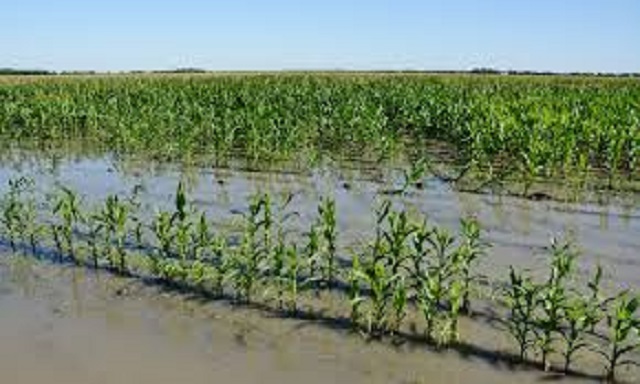EDITORIAL COMMENT: Wet spell will salvage farming season

The Government announced at the beginning of this month that it was launching a national crop and livestock assessment.
The announcement, by Cde Davis Marapira, the Deputy Minister of Lands, Agriculture and Rural Resettlement on January 30, came amid a dry spell that started around Boxing Day last year and had caused some 30 percent of the maize crop to reach permanent wilting stage.
Farmers were beginning to lose hope. The Government was also getting uneasy over the high temperatures and their implications for food security and economic wellbeing for our agro-based economy. The general people were also getting worried. Experts were inquiring about the state of the strategic grain reserve.
The situation was so bad that even in Mashonaland region which traditionally receives abundant rainfall, was dry as well. In Rushinga in Mashonaland Central for example 10 percent of the planted maize had reached permanent wilting stage. Tobacco was also showing signs of false ripening.
In Masvingo, Midlands, southern Manicaland, Matabeleland South and Matabeleland North provinces small grains were moisture-stressed with maize wilting. In Mwenezi and Chiredzi districts in Masvingo, farmers had started considering mobilising supplementary feeding for their livestock as their pastures were getting depleted.
However, a few days into this month, the situation improved with much rainfall falling all over the country. It has been raining effectively non-stop since then. The heavy rainfall has actually caused flash floods in some high density suburbs in Bulawayo. In Mt Darwin in Mashonaland Central Province floods have marooned 85 pupils from Zingore Primary School since Monday when a nearby river burst its banks.
In Muzarabani in the same province, 31 huts and 34 blair toilets were destroyed. In the Glendale area of Mazowe District, also in Mashonaland Central Province, several houses were last week flooded with water mixed with sewage due to a poor drainage system. In Rushinga District, seven gold panners were marooned at the confluence of Mazowe and Nyadire rivers from February 4 to 5.
It has been a dramatic turn of events which is most welcome. We thank God for the rains. He has demonstrated His power and exposed the weaknesses that are inherent in humans as many of us were beginning to lose hope and fretting about our future, a future which we, needless to say, we have no control over.
The season has been salvaged so we are now looking forward to a decent harvest, not a drought that we feared was going to hit us.
The Government is urging farmers who lost their crops to the dry spell to try planting short season varieties, small grains or sugar beans.
“We urge farmers to continue planting summer crops as the rains continue to fall across the country. Some should adjust to short term varieties such as the two and three maize series and small grains such as sorghum. This is also the right time to plant beans and we will be assured of a better harvest,” we quote Cde Marapira as saying elsewhere in this issue.
It is possible for farmers to start planting at this time, he said, because the rains are projected to continue up to April or May.
“The current rainy season is likely going to go into April or May meaning that moisture in the ground can feed the crops till they mature,” he said.
With the rains falling, some farmers are, unfortunately, facing a risk of heavy leaching of their fields. If the rains continue and leaching continues, growers might realise smaller harvests.
However, as Cde Marapira advises, growers whose fields are sandy, hence prone to leaching need to invest in and apply top dressing fertiliser. They also need to enhance weed and pest control measures for weeds and pests tend to blossom during prolonged wet conditions.
Livestock farmers will certainly be relieved that the pastures that were under pressure so early into the year have now recovered. We are optimistic that they will be sufficient to take their livestock to the next rainy season.
But as every livestock producer must always know, incessant rains, while they are important in boosting pastures can result in an outbreak of diseases and some parasites.
As the rains are heavy and persistent there is a possibility that they can expose anthrax spores that can infect animals in larger numbers. Ticks are often a problem in the prevailing conditions as well and can be a bigger problem if the rains persist. The pests can cause tick-borne diseases such as January disease, heart water and red water. Lumpy skin disease is a possible challenge too.
Overall, we are pleased that our fears of a drought have not come to pass and instead, we are likely to have a good agricultural year. However, farmers must be vigilant for possible challenges that can arise given the obtaining weather conditions.











Comments